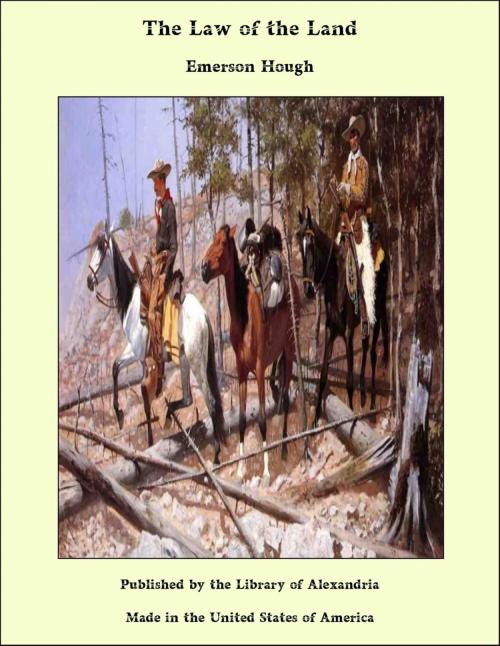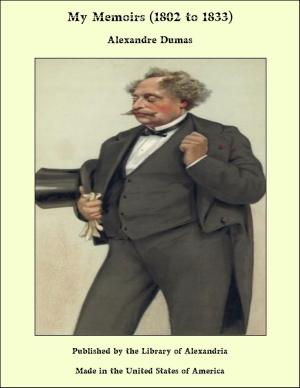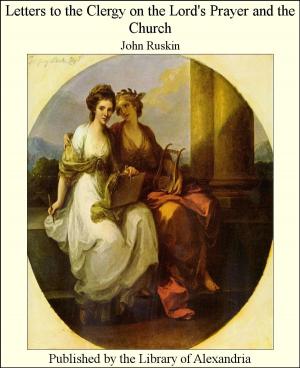| Author: | Emerson Hough | ISBN: | 9781465560599 |
| Publisher: | Library of Alexandria | Publication: | March 8, 2015 |
| Imprint: | Language: | English |
| Author: | Emerson Hough |
| ISBN: | 9781465560599 |
| Publisher: | Library of Alexandria |
| Publication: | March 8, 2015 |
| Imprint: | |
| Language: | English |
Ah, but it was a sweet and wonderful thing to see Miss Lady dance, a strange and wondrous thing! She was so sweet, so strong, so full of grace, so like a bird in all her motions! Now here, now there, and back again, her feet scarce touching the floor, her loose skirt, held out between her dainty fingers, resembling wings, she swam through the air, up and down the room of the old plantation house, as though she were indeed the creature of an element wherein all was imponderable, light and free of hampering influences. Darting, nodding, beckoning, courtesying to something that she saw—it must have moved you to applause, had you seen Miss Lady dance! You might have been restrained by the feeling that this was almost too unreal, too unusual, this dance of the young girl, all alone, in front of the great mirror which faithfully gave back the passing, flying figure line for line, flush for flush, one bosom-heave for that of the other. Yet the tall white lilies in the corner saw; and the tall white birds, one on each side of the great cheval glass, saw also, but fluttered not; since a lily and a stork and a maiden may each be tall and white, and each may understand the other subtly. Miss Lady stood at length, tall and white, her cheeks rosy withal, her blown brown hair pushed back a bit, one hand lightly resting on her bosom, looking—looking into the mirror, asking of it some question, getting, indeed, from it some answer—an answer embodying, perhaps, all that youth may mean, all that the morning may bring. For now the sun of the South came creeping up apace, and saw Miss Lady as it peered in through the rose lattice whereon hung scores of fragrant blossoms. A gentle wind of morning stirred the lace curtains at the windows and touched Miss Lady’s hair as she stood there, asking the answer of the mirror. It was morning in the great room, morning for the southern day, morning for the old plantation whose bell now jangled faintly and afar off—morning indeed for Miss Lady, who now had ceased in her self-absorbed dance. At this very moment, as she stood gazing into the mirror, with the sunlight and the roses thus at hand, one might indeed have sworn that it was morning for ever, over all the world! Miss Lady stood eager, fascinated, before the glass; and in the presence of the tall flowers and the tall birds, saw something which stirred her, felt something which came in at the window out of the blue sky and from the red rose blossoms, on the warm south wind. Impulsively she flung out her arms to the figure in the glass. Perhaps she felt its beauty and its friendliness. And yet, an instant later, her arms relaxed and sank; she sighed, knowing not why she sighed.
Ah, but it was a sweet and wonderful thing to see Miss Lady dance, a strange and wondrous thing! She was so sweet, so strong, so full of grace, so like a bird in all her motions! Now here, now there, and back again, her feet scarce touching the floor, her loose skirt, held out between her dainty fingers, resembling wings, she swam through the air, up and down the room of the old plantation house, as though she were indeed the creature of an element wherein all was imponderable, light and free of hampering influences. Darting, nodding, beckoning, courtesying to something that she saw—it must have moved you to applause, had you seen Miss Lady dance! You might have been restrained by the feeling that this was almost too unreal, too unusual, this dance of the young girl, all alone, in front of the great mirror which faithfully gave back the passing, flying figure line for line, flush for flush, one bosom-heave for that of the other. Yet the tall white lilies in the corner saw; and the tall white birds, one on each side of the great cheval glass, saw also, but fluttered not; since a lily and a stork and a maiden may each be tall and white, and each may understand the other subtly. Miss Lady stood at length, tall and white, her cheeks rosy withal, her blown brown hair pushed back a bit, one hand lightly resting on her bosom, looking—looking into the mirror, asking of it some question, getting, indeed, from it some answer—an answer embodying, perhaps, all that youth may mean, all that the morning may bring. For now the sun of the South came creeping up apace, and saw Miss Lady as it peered in through the rose lattice whereon hung scores of fragrant blossoms. A gentle wind of morning stirred the lace curtains at the windows and touched Miss Lady’s hair as she stood there, asking the answer of the mirror. It was morning in the great room, morning for the southern day, morning for the old plantation whose bell now jangled faintly and afar off—morning indeed for Miss Lady, who now had ceased in her self-absorbed dance. At this very moment, as she stood gazing into the mirror, with the sunlight and the roses thus at hand, one might indeed have sworn that it was morning for ever, over all the world! Miss Lady stood eager, fascinated, before the glass; and in the presence of the tall flowers and the tall birds, saw something which stirred her, felt something which came in at the window out of the blue sky and from the red rose blossoms, on the warm south wind. Impulsively she flung out her arms to the figure in the glass. Perhaps she felt its beauty and its friendliness. And yet, an instant later, her arms relaxed and sank; she sighed, knowing not why she sighed.















